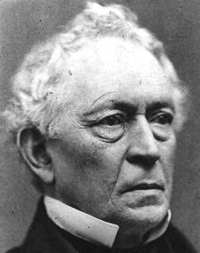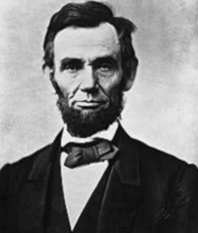

 |
 |
|
Edward Everett
|
Abraham Lincoln
|
There is little or no credible evidence to support the legend of how Lincoln wrote his greatest speech. The story goes that it was scribbled on the back of an envelope during the train ride up to Gettysburg. In reality, drafts of the speech were written on Executive Mansion (that is, White House) stationery. Lincoln, did, apparently, fine-tune the speech after he arrived at Gettysburg. However, as is often the case with legends of this sort, the real story is at least as good as the imagined one.
By many accounts, inviting Lincoln to the dedication of the cemetery was nearly an afterthought -- an afterthought that the world will always remember -- while the remarks of the featured speaker, Edward Everett, have been almost entirely forgotten. Everett spoke for upwards of 120 minutes. He expounded on the events of the battle, discussed ancient Greek traditions for burial of the dead, offered general overview of the course of the war to that time -- and said much else beside. Lincoln spoke for perhaps 120 seconds.
The next day, Everett wrote to the President, saying: "Permit me also to express my great admiration of the thoughts expressed by you, with such eloquent simplicity & appropriateness, at the consecration of the cemetery. I should be glad, if I could flatter myself that I came as near to the central idea of the occasion, in two hours, as you did in two minutes." Everett's speech ran to over 13,000 words. Lincoln's was under 300 words long.
Edward Everett had a long and distinguished career, and was a famous orator of his time. It is deeply ironic that what he is most famous for these days is that he delivered the speech everyone has forgotten, and did so just before the speech that the world will always remember.
You can read the full text of Everett's Oration here -- and Lincoln's remarks here